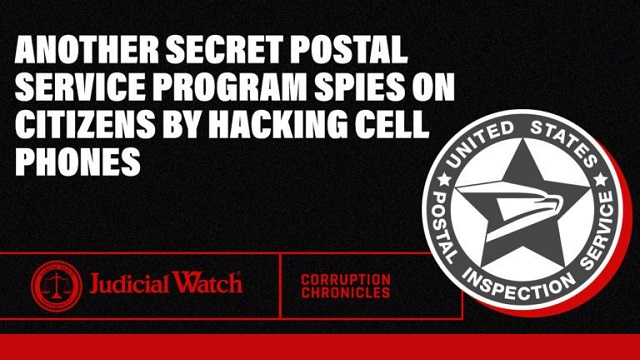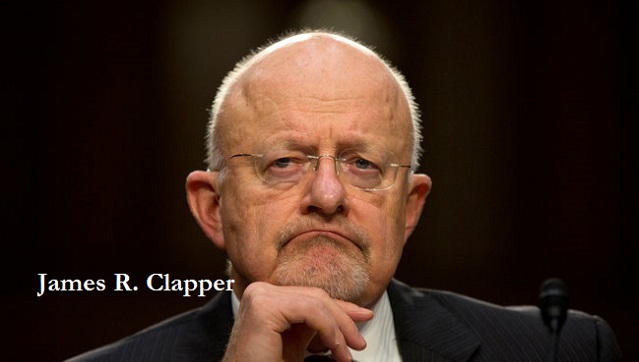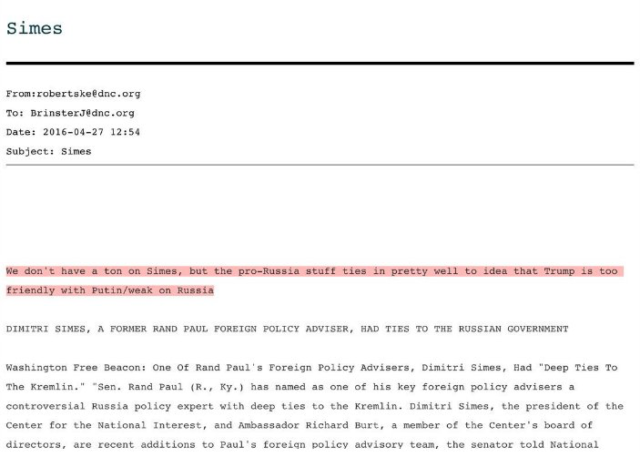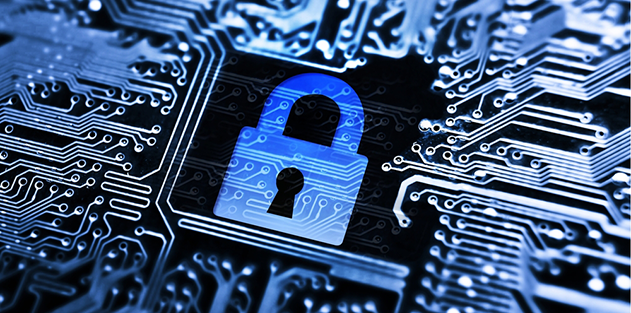Here’s the real problem with the joint intelligence report on alleged Russian hacking: without the classified details, we ordinary citizens are supposed to take the breathless allegations, presented as “high confidence” intelligence judgments, on faith.
Director of National Intelligence James Clapper and CIA Director John Brennan are crossing their fingers and saying, “Trust us.”
Since both are political appointees – Brennan in particular came directly out of the Obama White House, where he is believed to have orchestrated secret arms smuggling through Libya to Syrian rebels that led directly to the Benghazi disaster – excuse me if I remain skeptical.
Has Russia been engaged in sophisticated disinformation operations in the United States? Well, duh. That’s been going on for decades. During the Cold War, as General Clapper reminded the Senate Armed Services Committee on Thursday, we had a separate United States Information Agency (USIA) at the State Department to combat Soviet intelligence desinformatziya and, to a lesser degree, maskirovka.
The USIA regularly issued bulletins on Soviet deception operations, and traced how they were laundered through predominantly Third World media (India was a big favorite in the 1980s) until they made it into the United States, generally as part of left-wing conspiracy outlets.
A few examples were fabricated stories that the CIA had invented AIDS, or that Korean Air Lines Flight 007, which was shot down by Soviet fighters in 1983, had been flying a covert U.S. intelligence mission. The KGB also planted forged documents to smear American politicians and then “leaked” them to (usually) unwitting journalists.
But that’s not what happened here. If we are to believe the unclassified Russian hacking report, released on Friday, Russian intelligence agents hacked into the DNC and into the Hillary Clinton campaign servers and then turned over emails it exfiltrated to DCleaks.com and to Wikileaks.
“Moscow most likely chose WikiLeaks because of its self- proclaimed reputation for authenticity. Disclosures through WikiLeaks did not contain any evident forgeries,” the report stated.
Note that statement: the Russians didn’t spread obvious falsehoods or sophisticated disinformation. They disseminated the truth – stolen documents, yes. But true.
That is one reason why many Americans are having a hard time getting steamed at the Russians for exploiting the stupidity of John Podesta, who responded to a spearphishing attack by emailing his password, which was the word “password.”
Dumber than that, you die… of ridicule.
RNC Chairman Reince Priebus told FoxNews that the RNC reported similar attempts to penetrate its email to the FBI, and was never successfully penetrated. Why? Because they already had common sense security protocols in place.
Nations spy on each other. Democrat operatives need to get over it – or perhaps, just set aside the roach and revive their collective memories. After all, it was just two years ago that President Obama sent his 2012 campaign field director, Jeremy Bird, and four other political operatives to Israel, with orders to help defeat Israeli Prime Minister Bibi Netanyahu in his March 2015 re-election effort.
That was direct, overt, U.S. government interference in the election of a U.S. ally. But because it was Obama and Netanyahu, Democrats just didn’t get steamed.
By the way, if the Russians could penetrate the Clinton campaign server, what’s to say they didn’t also penetrate the private email server Mrs. Clinton set up to mask her “private” dealings while she was Secretary of State? And yet, the U.S. hacking report never alleges that this happened, nor does it allege that the Russians disclosed classified U.S. documents.
Perhaps that was a red line the Russians didn’t want to cross? Leaking unclassified emails that revealed the hypocrisy of the Clinton team and the Democrat party could arguably be construed as doing the work the U.S. news media failed to do. Leaking classified documents is another matter entirely.
Fully half of the unclassified U.S. report details the activities of RT television, formerly known as Russia Today.
It’s hard to believe that anyone watching RT is not aware of its strong Russia connection. The U.S. report accurately describes how RT unsurprisingly coordinated its propaganda with the Russian state.
What about MSNBC and CNN coordinating their propaganda with a political party, the DNC?
The U.S. report criticizes Russia because “RT coverage of Secretary Clinton throughout the US presidential campaign was consistently negative.” Somehow I missed the report’s criticism of MSNBC, CNN, the New York Times and the Washington Post for their “consistently negative” coverage of Donald Trump.
But I get it: that’s because RT is controlled by a foreign state, and those U.S. media organizations are privately owned.
So why doesn’t the U.S. intelligence report criticize other foreign state-owned media organizations, such as the BBC, or TF1 and France 2 in France, that not only broadcast coverage of Donald Trump that was “consistently negative,” but portrayed him as “emotionally unbalanced,” “unhinged,” “incompetent,” “unqualified to be President,” “racist,” “misogynist,” etc.?
The U.S. report announces on page 1 that it “covers the motivation and scope of Moscow’s intentions regarding US elections and Moscow’s use of cyber tools and media campaigns to influence US public opinion.” Perhaps it’s just me, but I find it odd that U.S. intelligence analysts would put their analysis of Russian motivation before the facts. But that’s the way it reads throughout.
One curious omission: the report contains no assessment of the impact that Russian activities had on the outcome of the 2016 election. While the report claims this is because it’s not the job of the intelligence community to “analyze US political processes or US public opinion,” I can guarantee you that if they had detected a clear impact of the Russian hacking, they would have spread it like butter on toast.
Michael Moore may have influenced more voters in a YouTube clip from his one-man show in Michigan, than RT did in all of its election coverage. The five-minute segment went viral when it was first released; many people thought they were actually watching left-wing ideologue Moore endorse Donald Trump.
Moore of course had no intention of endorsing Trump, but wanted to show his audience that he “understood” the motivation of Trump voters, and that they were “good” people. From the astonished look on the faces of people in the audience, it’s easy to imagine many of these Michigan voters suddenly realizing it was “okay” for them to vote for Trump, even if they traditionally had identified with Democrats.
The omission of any context in the unclassified version of this report, coupled to the breathless tone of its “high-confidence” conclusions and total lack of factual evidence in the public version, makes it appear like a political hatchet job. That in itself does a disservice to the honest, hard-working intelligence gatherers and analysts of the U.S. intelligence community.
EDITORS NOTE: This column first appeared on FrontPage Magazine.













